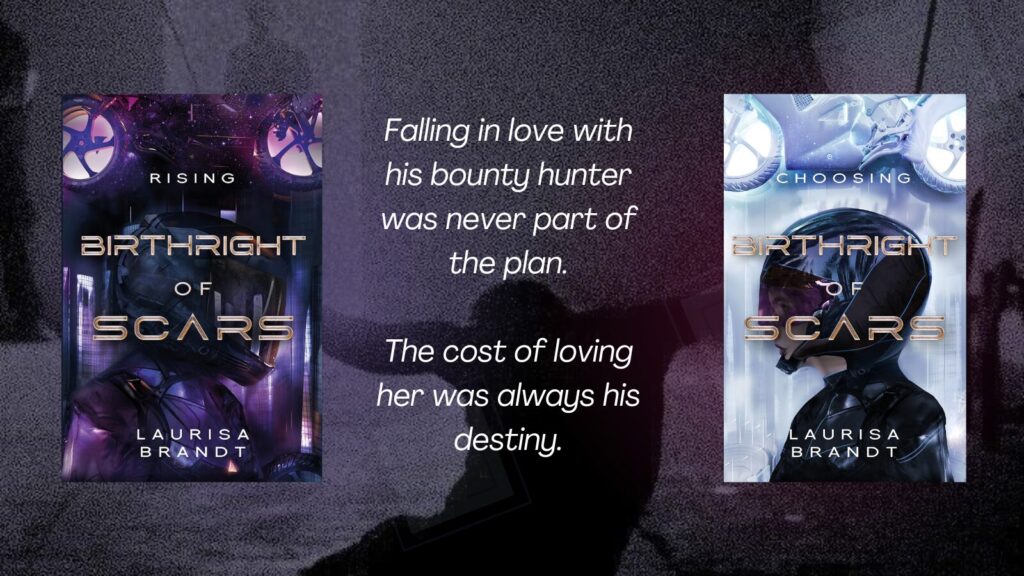I write a few lines of dialogue into my draft and pause, mulling over what comes next. I hit the backspace a few times and try another angle. But the scene isn’t flowing the way I envision it.
The next thing I know, my hand is coming away from my eyes with a small cluster of eyelashes pinched delicately between my forefinger and thumb. I feel entranced, pleasured, and simultaneously frustrated. I want to stop, but each tug that releases a hair follicle from my skin brings relief in waves.
I get up and move. I breathe deeply. I go to the faucet and rub cool water on my warm, burning eyelids. I look in the mirror to get a damage assessment. One area of my upper eyelid is thinned but not bald. Shame tries to creep up on me but I smack it down with an affirmation and self-compassion. I look at myself in the mirror and tell younger me I’m proud of her and I love her. I remind her she has the strength to stop pulling, even though the urge to continue is overpowering my senses at that same moment. I remind her that it’s nicer to be in public with eyelashes than without.
Even as I return to my writing, my eyelids ache for my fingers to return and I find myself self-consciously returning my hands to my sides or the keyboard. The thought of having my hands bound where they cannot reach my face makes me want to scream with frustration.

Trichotillomania is not only my writing battle. It’s my reading-my-Bible battle. It’s my while-praying battle. It’s my trying-to-file-my-taxes battle. It’s my trying-to-learn-a-new-task battle. And when it manifested in my 5th grade year, it was my trying-to-solve-a-stupid-math-problem-before-i-get-yelled-at-again battle.
Rarely does the urge go away quickly or on its own. It tapers off over the next couple of hours after repeated failures at stopping it. There’s a phantom “itch” in the new pull zone. And the compulsion remains until that area has nothing left to pull. I exhaust every coping method in my mental toolbox, sometimes even abandoning my creative writing for the rest of the day in favor of more sensory tasks, like cooking.
When I return to the sink to wash my hands, all I can see in the mirror is the new bald spot staring back at me. The scar on the treatment around the windows to my soul. The rest of me, my face and who I am, is out of focus.
Trichotillomania is a body focused repetitive habit, and only one of many I’ve carried all of my life. I was a nail biter for many years until anxiety around catching stomach viruses compelled me to keep my fingers out of my mouth. I remember I was a lower lip-puller in Kindergarten only because of my parents pressuring me to stop. I’m a nearly constant face-toucher when I don’t have the energy to “people” and I’m forced to socialize when I’d rather be at home. And when I successfully stop a trich episode in its tracks, I’ve probably shifted into playing with my nose. Will it get longer? Will it fall off? Don’t know, don’t care. It’s a favorable trade, so I’ll worry about that when I have a nice rack of eyelashes.
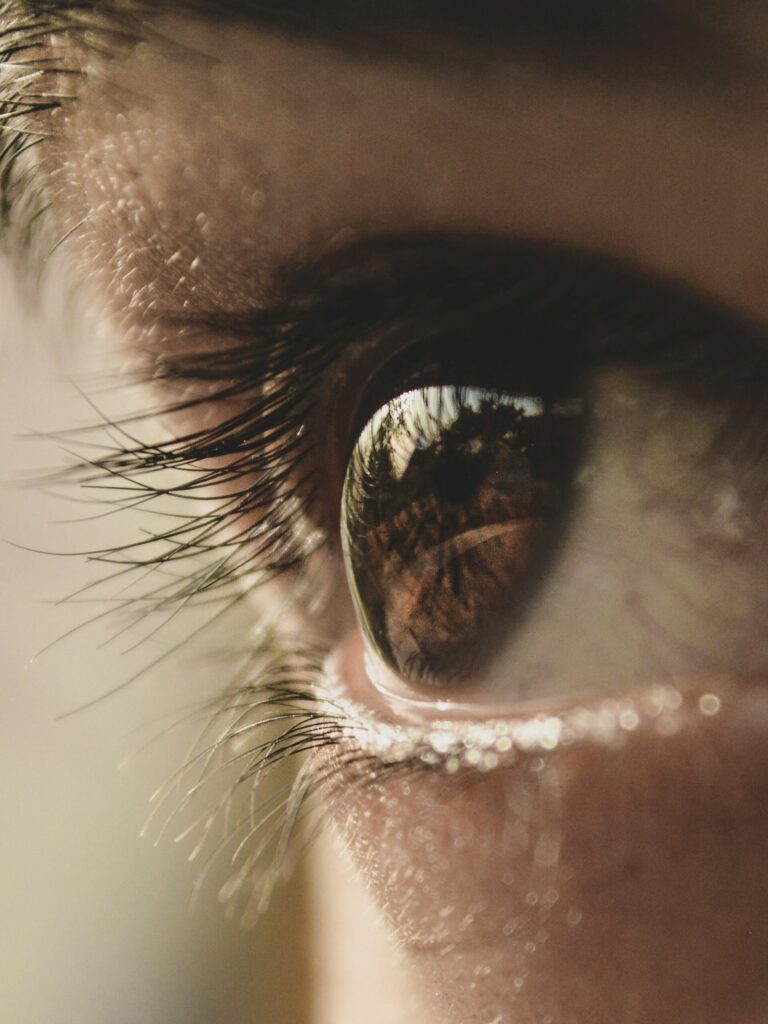
Being a writer struggling with Trichotillomania, face-touching, skin-picking, or any other body-focused repetitive habit is not much different than being anyone else with the same OCD related struggles. I suspect it might just come with the territory, since creative types are more likely to suffer manic-depressive episodes or bipolar disorder.
They’re also more likely to highly sensitive (HSP), intuitive, and therefore struggle with anxiety and other mental health issues, all of which correlate with body focused repetitive behaviors (BFRB.)
But if you are a writer, I’d like to offer you encouragement and tips to help you minimize and reduce trichotillomania episodes without reducing your word count or consistency.
I see You, Dear Person
Not the bald spots. Not even the hurt behind it all or the subconscious wounds that trigger it. You. The person with a heart that wants to heal others and make the world a better place. The person who is strong, caring, encouraging, and hopeful. I see your drive for perfectionism, your need to perform so that you are seen and valued.
And I see that you are enough. I see that you are needed both as someone who can simply be, and as someone with creative gifts and skills.
You are worth being cared for and supported as much as you care for and support others. And I know that all the encouragement and support in the world can’t magically end your relationship with trichotillomania. So here are all the things that help me continue to write beautiful stories of struggle, pain, and overcoming and keep my eyelashes at the same time.
Never Say "My *Mental illness*"
This is as much a spiritual practice as it is a mental mindset one. Even if you have an official medical diagnosis, don’t claim it as yours. Trich is not welcome because of “My Anxiety, ” or because “I have anxiety.” It is a result of anxiety. It is not “my trichotillomania.” It is not even “my body focused repetitive behavior.”
Your words hold power. So when you fall ill, never say, “I am sick.” Instead, say, “I am healing.” When educating a family member or friend about trichotillomania or other BFRBs, you can say, “I am recovering from,” “I am overcoming,” or “I am healing from.”
Words manifest, and as a writer and creative, you know this power more than most.
Not Starting is Easier than Stopping
Trichotillomania and other BFRBs don’t always have obvious triggers. The cause can be underlying, such as during periods of hormonal stress or seasons when the body is remembering past trauma. Sufferers of anxiety might find themselves struggling during a the same month of the year that they lost a loved one, a pet, a job, or went through some other difficulty.
But stopping the urge to pull is definitely more challenging than avoiding known triggers. If you’ve experienced how next to impossible it is to stop once you’ve begun pulling hair, it is worth doing what you can to avoid triggers or curtail your exposure to them. For example, caffeine causes me to have anxiety. I avoid caffeinated beverages.
Job and family related stress can be more difficult to avoid or head off. But checking in with yourself and noting your stress levels is the first step to preventing an episode. Listen to your body during and leading up to your performance of the BFRB. Learn the signs and symptoms. Soon, you will know when you’re about to reach the threshold and start the behavior. Once learned, you can take steps to minimize your stress early on, remove yourself from stressful situations, and reduce the number of episodes.
If you find yourself pulling during a creative writing session, it is unlikely that your art is the source of stress. It may be a self-imposed deadline, imposter syndrome and negative thinking patterns, shame spirals, stress from earlier in the workday, etc.
Here are some of my writing related triggers to consider and adapt your creative process.
Drink More Water
Staying hydrated improves mental clarity and focus. Having to get up to drink might keep my a little more active during a writing session, but chances are I’m going to get lost in the flow state and remain very thirsty. Keeping a glass of water at my writing desk where I can see it and easily take a sip has significantly reduced my stress levels (and hair pulling) during longer writing sessions.
Write Outdoors
Being outdoors is scientifically proven to reduce stress and anxiety levels. For people without seasonal allergies or phobias of insects, that is. But if you’re like me and you already love being outdoors, taking your creative writing out on the porch or a nearby park, or even the patio of your local coffee shop.
Try Pink Noise or ASMR
Contrary to what you might think, ASMR, ambience such as rain, and other white, brown, and pink noise doesn’t lull this writer to sleep.

What it does do is help me feel relaxed and avoid starting an eyelash removal episode. Pink noise is believed to help those with ADHD, autism, and bipolar disorder. And if you grew up getting tingles from hearing your fellow classmates’ pencils scratching away on their test papers, ASMR might be just what you need to lower those stress levels and stay in a pull-free creative flow.
Block Blue Light
Blue Light blocking glasses are a must for those who write in the late evenings and night. Particularly for people who pull eyelashes or brow hairs. It can reduce mental stress generated by blue light, however, I’ve found it has one flaw. I’ll often unconsciously reach for my eyes and smudge my glasses. Once removed for cleaning, with the urge to pull coming on strong, my eyelashes are at the mercy of the compulsion. This is still something I recommend if you’re a night writer, but my next tip explains why I imposed a writing curfew on myself.
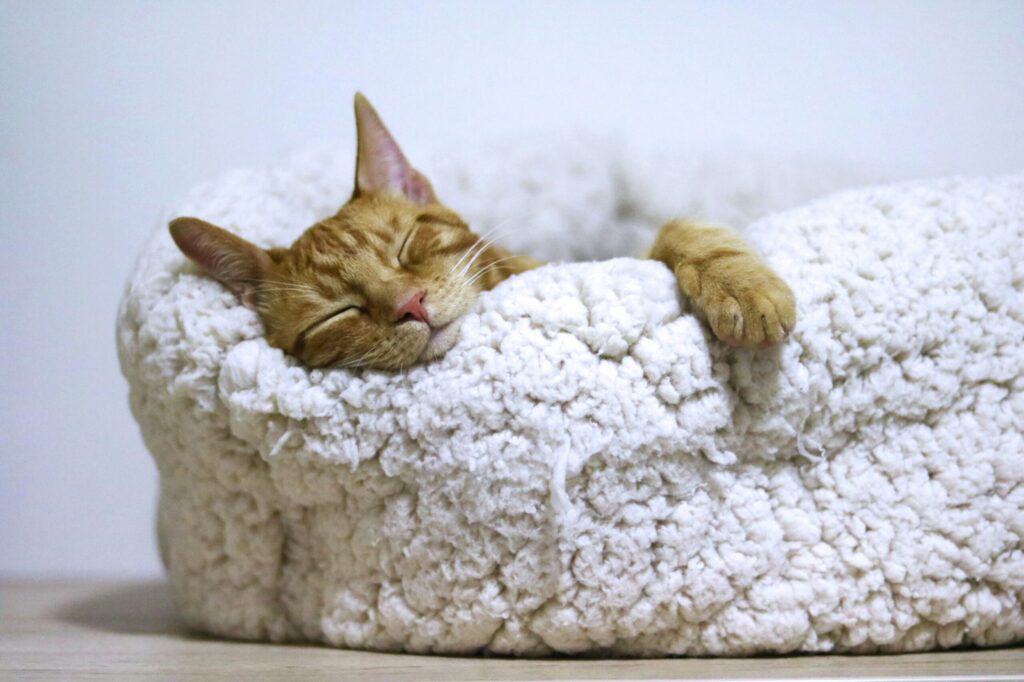
Stay Rested
Tiredness can exacerbate stress and anxiety. With my evening writing sessions, I found I would do great until about 9pm. And as I sat groggily in front of my computer, I’d find myself pulling hair and getting nowhere. Instead of waiting for an episode to start, I learned to quit sitting in front of the computer so late.
I rescheduled my days to write earlier and used my evenings to wind down with a mug of something warm and a good paperback novel or devotional. I dropped the hustle and grind mentality and adopted a take-care-of-the-writer mentality.
Starving artists only write about and paint pictures of food. In order to write better quality stories, I needed to take care of my mental health. Writing past 8pm was no longer a sacrifice I was willing to make for 300 more words on a page. Sacrificing my hard-grown eyelashes was not something I would do for 300 more words on a page. Learn to love yourself and respect your limitations. Don’t drive yourself harder than you would another person obviously struggling with anxiety and BFRBs. Making time for a good night’s rest will empower you to have a more productive day tomorrow.
Stay Active
If long hours in a chair, staring at a computer screen trigger your BFRB, try shorter writing stints after taking a brisk walk or working out. Consider dictation. Regular exercise is known to reduce stress and improve mood. If writing to upbeat music is your thing, you might try setting a timer and getting up to dance every fifteen minutes. Buy a standing desk to encourage movement. Motion is lotion, not only for the body, but also for the mind.
Remember to Breathe
I’ve found I’m a chronic breath holder. And when I’m in an anxious state or a trich episode, I’m breathing shallowly or holding my breath. While a moment of activity can help you take deeper breaths, regulating your breaths while sitting and writing will help you keep stress down and BFRBs at bay through your writing sessions.
Keep a little sign in your favorite writing spot, or put a sticker on your laptop to help you remember to just– Breathe.
Allow Yourself To Quit
I have never written something amazing after the onset of a trich episode. Ever. A BFRB state is not a creative state. It is not a healthy mental state. It is a depressive, anxious, obsessive-compulsive state. How can anyone create great art when they are not in a healthy mental state?
The opposite of depression is expression. For myself, the onset of hair pulling signals the end of any valuable productivity. In any work sphere, an employee who is emotionally distraught and unable to complete their tasks will be asked to take a breather. Calm down in a side room. Take the rest of the day and go home to recover.

You are your own boss, and when your mental health starts manifesting harm upon your physical self, you need to quit requiring yourself to perform for the hour, a few hours, or maybe the rest of the day. Switch tasks and remain positive. Instead of being disgruntled that you only made 50% of your word count goal, praise yourself for the 500 words well written.
Get Professional Medical Help
No material on this site is intended to be a substitute for professional medical advice, diagnosis or treatment. If any of what I have shared resonates with you, but you find yourself very lonely and frequently entertaining thoughts of self-harm, please call or text 988 to reach the National Suicide & Crisis Lifeline.
There are no medications approved by the US Food & Drug Administration specifically for the treatment of trichotillomania, or many other BFRBs such as dermatillomania and rhinotillexomania. Doctors will typically prescribe antidepressants or antipsychotics to help curb the behavior. Cognitive Behavioral Therapy (CBT) and Habit Reversal Training may be available through some healthcare providers.
My intent is only to encourage and foster healthy coping strategies in creatives who share my experiences and struggles with BFRBs so that they can experience a more positive creative lifestyle. Your journey toward a healthier you is as unique as you are. And I hope all of these steps that have reduced my episodes work for you.
Remember, first and foremost, to
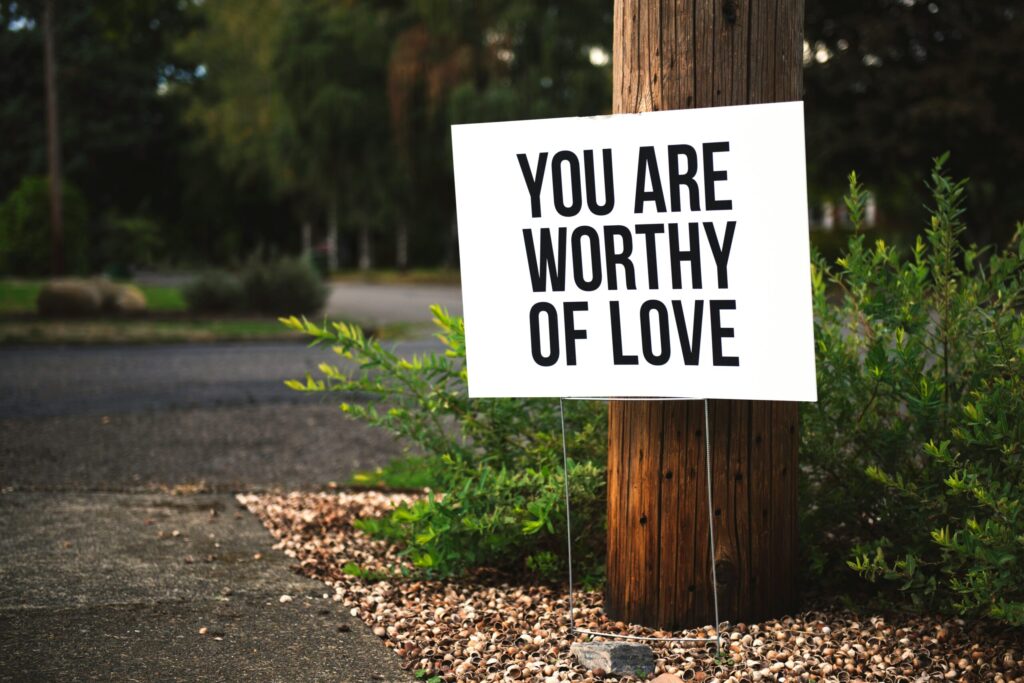
Have Compassion For Yourself
It takes time to rewire cognitive patterns and erase unwanted habits. Even with Habit Reversal Training, some people require ongoing maintenance therapy. You are healing. Healing is a journey.
Creativity, even writing a novel, is a journey. Embrace the journey and have compassion for yourself along the way. You’ve got this.
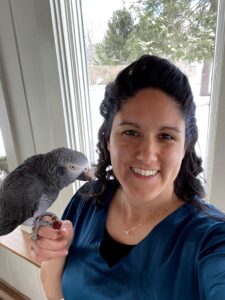
Laurisa Brandt writes immersive and heroic sci-fi fantasy adventures sweetened with romance. She currently lives in Central PA with her husband and their adopted Timneh African Grey parrot, Hercules.
